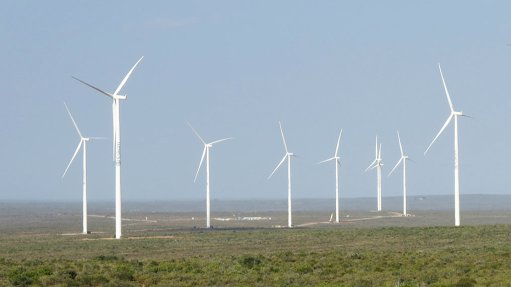PROVE IT
There is an age-old rhyming Russian proverb, “doveryay, no proveryay”, which became hugely popular in English in the 1980s as “trust but verify”. This was after Suzanne Massie, a scholar of Russian history, had taught it to the then US President, Ronald Reagan, who used it on several occasions in nuclear discussions with the Soviet Union.
When it comes to international trade, particularly how free it is and the advantages that can be derived from open markets, there is the small issue of trust. Take, for instance, ‘free’ market access, which is dependent on the country of origin, and for which a certificate of origin (COO) is required as proof. Access is never quite free; it is preferential at best.
COOs are considered nontariff barriers, since the rate of duty, levy or tax is irrelevant, as the mere origin of the good could restrict its access to a ‘free’ market.
Although countries profess commitment to the ‘national treatment principle’ – whereby imported goods must be treated in the same way as national goods – they generally don’t favour imported goods.
With recession being a major topic of discussion currently and with many wondering whether the world will go into a recession, there has been an interesting development in the US, namely the introduction on June 7 of a Bill which aims to “identify emissions intensity of domestically produced goods” as part of efforts to combat carbon emissions.
The Climate Leadership Council issued a statement on the so-called PROVE IT Act: “The bipartisan introduction of the PROVE IT Act is an important step towards better understanding, and ultimately leveraging, America’s carbon advantage. This Bill represents the most comprehensive effort by the US government to clearly estimate the carbon efficiency of dozens of industries across the world’s major economies. The Council welcomes it.”
PROVE IT, the acronym of the Bill, which was introduced by two US Senators, is derived from Providing Reliable, Objective, Verifiable Emissions Intensity and Transparency. According to the Senate’s media release: “This bipartisan legislation would direct the Department of Energy to conduct a comprehensive study comparing the emissions intensity of certain goods produced in the US to the emissions of those same goods produced in other countries. Comprehensive data on product emissions intensity is an important step to addressing climate through trade policy and levelling the playing field for domestic producers and manufacturers who are forced to compete against rivals with little to no standards.
“The US lives up to the highest environmental standards in the world, and the PROVE IT Act is an opportunity to bolster our advantage by backing it up with verifiable data. Americans know and appreciate the stewardship that goes into the energy we produce and the goods we manufacture. Quantifying global data will prove our emissions-intensive goods are cleaner here at home while highlighting the countries who monetise their lax or nonexistent standards.
“The bipartisan PROVE IT Act will provide reliable data that’s needed to quantify the climate benefits of the US’s investments in cleaner, more efficient manufacturing practices and to hold nations like [China] accountable for their emissions-heavy production of goods like steel. It will level the playing field and ensure our workers and producers are not unjustly penalised for their high environmental standards.”
So, what does this mean for South African exporters? And we all know that what the US does the European Union follows.
Article Enquiry
Email Article
Save Article
Feedback
To advertise email advertising@creamermedia.co.za or click here
Announcements
What's On
Subscribe to improve your user experience...
Option 1 (equivalent of R125 a month):
Receive a weekly copy of Creamer Media's Engineering News & Mining Weekly magazine
(print copy for those in South Africa and e-magazine for those outside of South Africa)
Receive daily email newsletters
Access to full search results
Access archive of magazine back copies
Access to Projects in Progress
Access to ONE Research Report of your choice in PDF format
Option 2 (equivalent of R375 a month):
All benefits from Option 1
PLUS
Access to Creamer Media's Research Channel Africa for ALL Research Reports, in PDF format, on various industrial and mining sectors
including Electricity; Water; Energy Transition; Hydrogen; Roads, Rail and Ports; Coal; Gold; Platinum; Battery Metals; etc.
Already a subscriber?
Forgotten your password?
Receive weekly copy of Creamer Media's Engineering News & Mining Weekly magazine (print copy for those in South Africa and e-magazine for those outside of South Africa)
➕
Recieve daily email newsletters
➕
Access to full search results
➕
Access archive of magazine back copies
➕
Access to Projects in Progress
➕
Access to ONE Research Report of your choice in PDF format
RESEARCH CHANNEL AFRICA
R4500 (equivalent of R375 a month)
SUBSCRIBEAll benefits from Option 1
➕
Access to Creamer Media's Research Channel Africa for ALL Research Reports on various industrial and mining sectors, in PDF format, including on:
Electricity
➕
Water
➕
Energy Transition
➕
Hydrogen
➕
Roads, Rail and Ports
➕
Coal
➕
Gold
➕
Platinum
➕
Battery Metals
➕
etc.
Receive all benefits from Option 1 or Option 2 delivered to numerous people at your company
➕
Multiple User names and Passwords for simultaneous log-ins
➕
Intranet integration access to all in your organisation

















